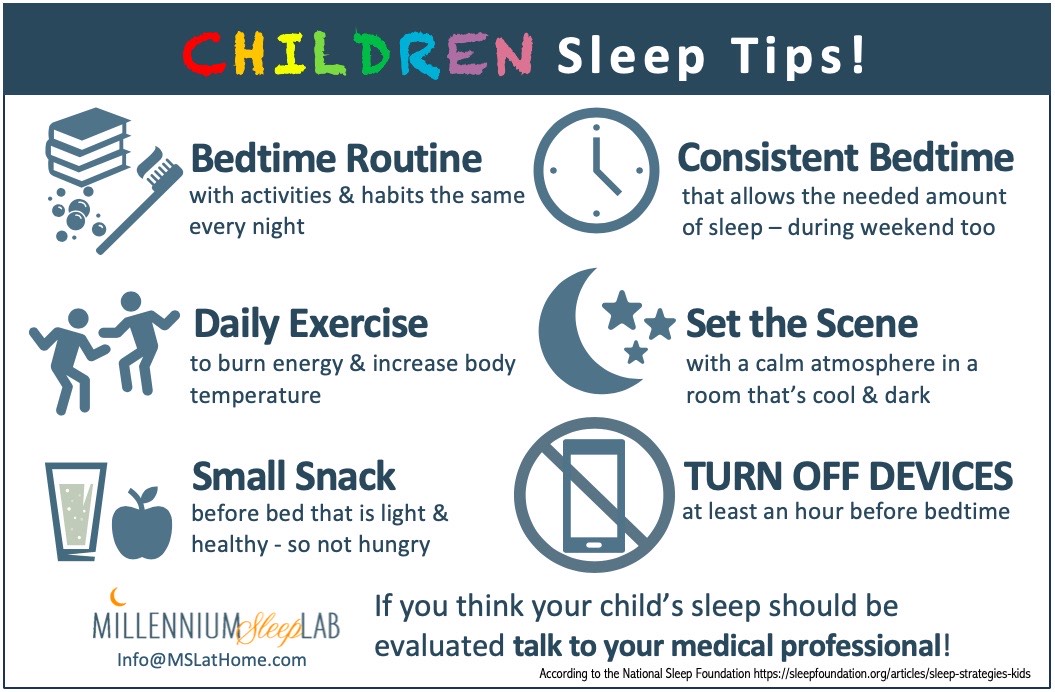Back to School
Despite all the debate of going back to school face to face or virtual, there is one thing kids will need regardless… good sleep!
After months of quarantine and summer break, many children’s sleep routines have been ruined or at least shifted later. Now kids need to sit and focus while at their desks or on computers — and need to retain the knowledge they are taught. Research shows kids need sleep in order to stay focused and learn!
New Research on Children’s Sleep
In July, a research study reported on the stages of sleep that proved essential in retaining new information. In the study, people were taught a new skill; during this process, they demonstrated the ability to learn and perform the task.
Researchers found that both stages of sleep, REM (rapid eye movement) and non-REM sleep, are important in acquiring this new skill. Non-REM sleep improved performance, but REM sleep was required for learning (1).
“When people sleep at night, there are many sleep cycles. REM sleep appears at least three, four, five times, and especially in the later part of the night. We want to have lots of REM sleep to help us remember more robustly, so we shouldn’t shorten our sleep.” Yuka Sasaki, PhD, a professor at Brown University, said in a press release. (2)
How long should my child sleep?
We know kids need enough sleep for multiple sleep cycles, but how much sleep is enough? The American Academy of Sleep Medicine recommends kids ages 6 to 13 get 9 to 12 hours and teens get 8 to 10 hours of sleep every night.
Tips to Improve Children’s Sleep
Kick off the school year by implementing these tips from the Family Fostering Partners for improving children’s sleep:
- Bedtime routine with the same activities each night to prepare for sleep.
- Daily exercise to burn energy and increase body temperature will improve sleep later.
- Small snack before bedtime that is light and healthy, so children won’t be hungry when it’s time to sleep.
- Bedroom atmosphere that is calm, cool and dark.
- Consistent bedtime that allows the necessary amount of sleep; stick to it during the week and on weekends
- Devices turned off at least an hour before bedtime (3)
What if sleep is still a problem?
If you child still struggles to sleep through the night or stay focused during the day, there might be a sleep disorder that is preventing them from reaching deep sleep. One possibility is obstructive sleep apnea which is common in adults, but it is also found in children — especially kids with enlarged tonsils or adenoids. A sleep specialist can help you get answers, looking for the root cause of the problem before offering treatment.
(1) https://www.nature.com/articles/s41593-020-0666-y
(3) https://www.familyfosteringpartners.co.uk/
